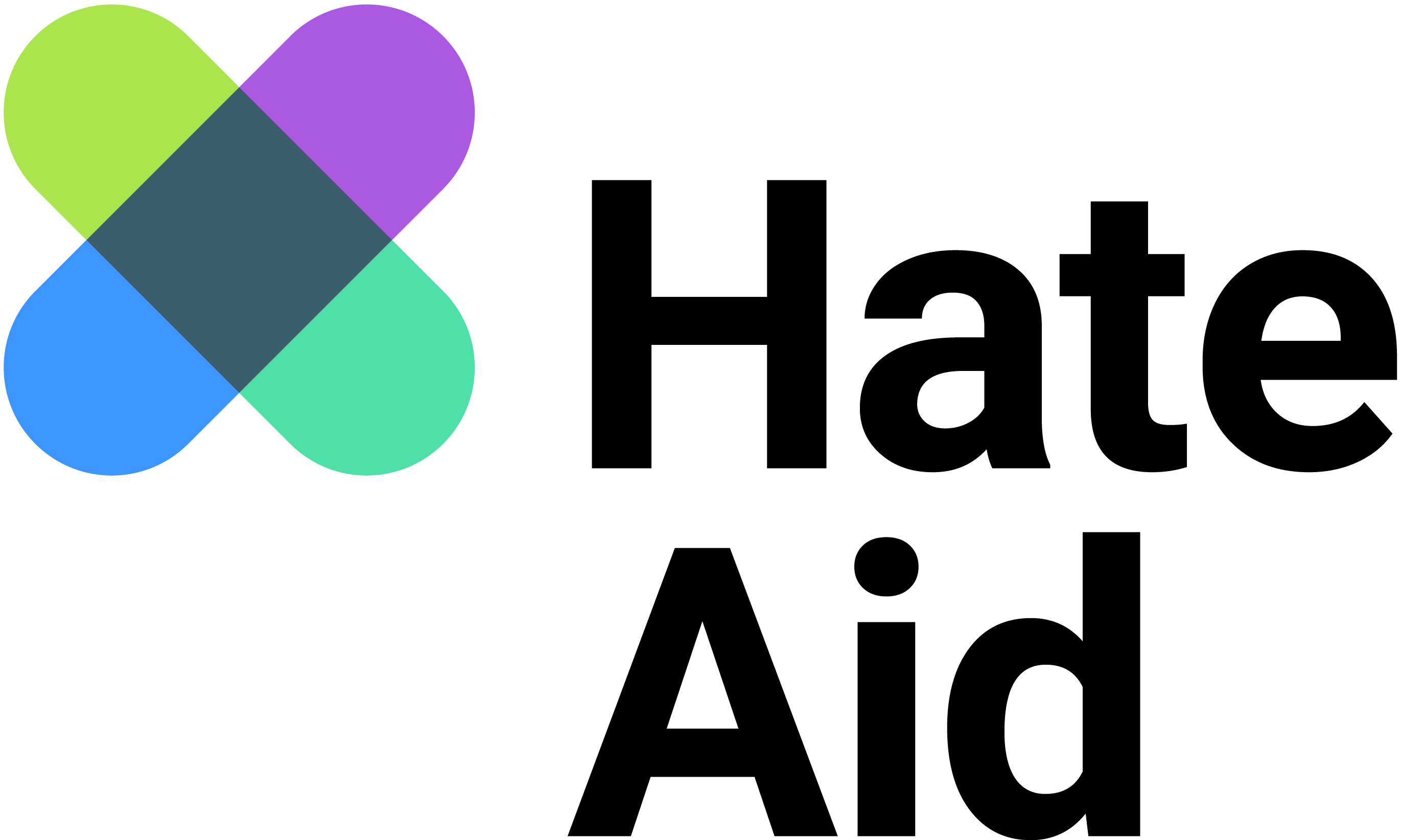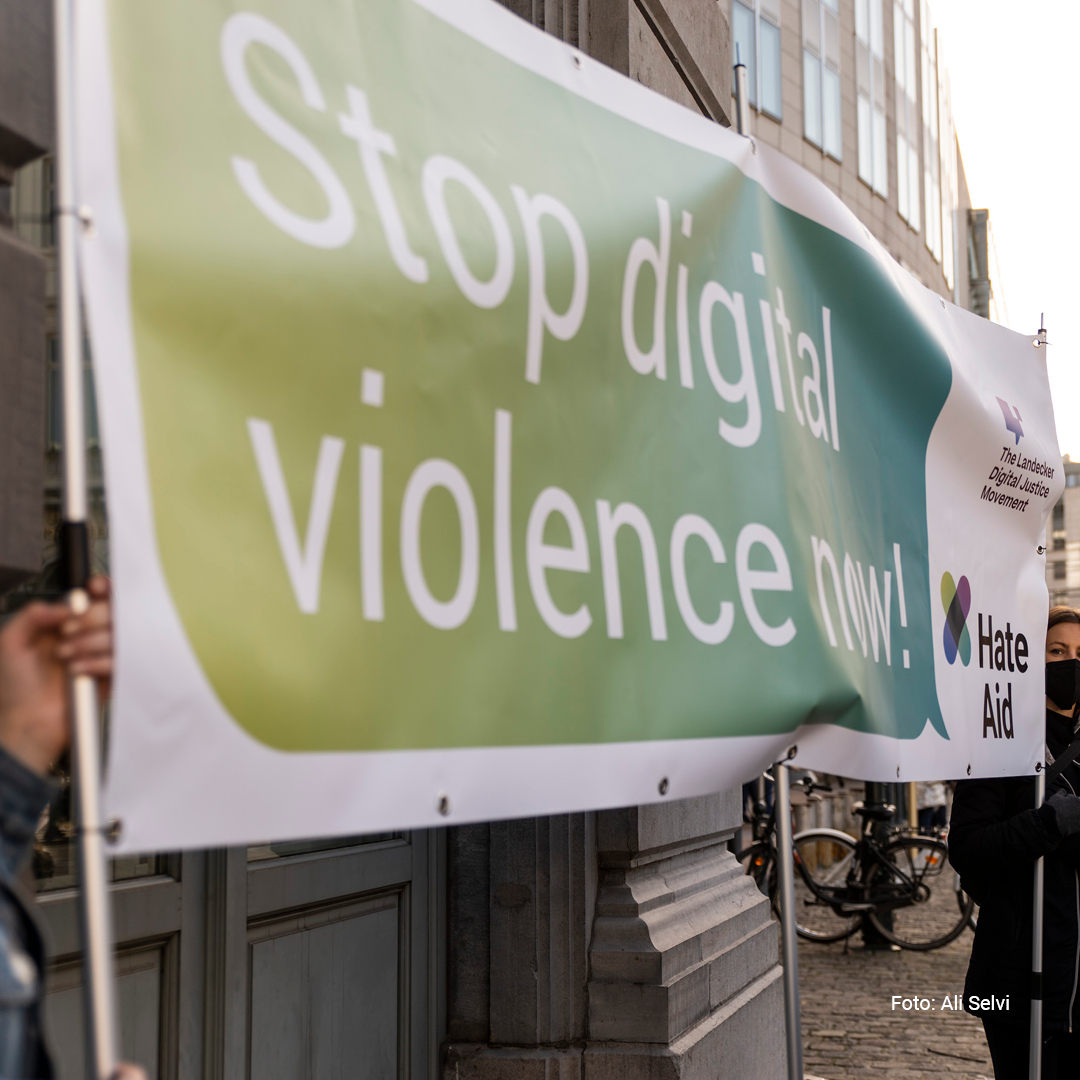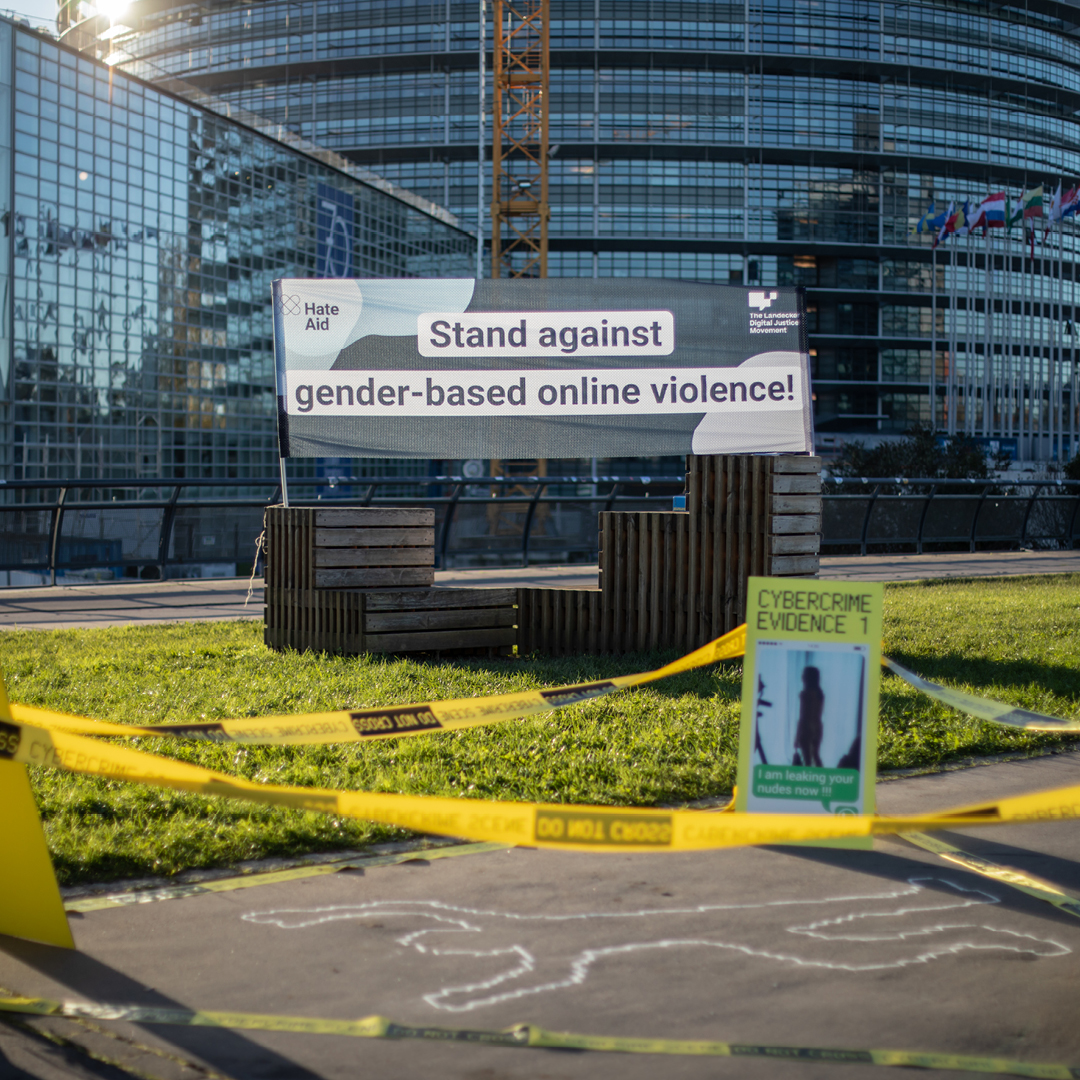HateAid launches landmark case against Facebook
In a landmark case, it is to be ruled whether the social media platform Facebook must proactively find and delete re-posted content that is similar in wording and meaning to material that has already been reported to it as unlawful. To this end, member of the German Parliament, Renate Künast, has filed a lawsuit against the social media platform before the Regional Court of Frankfurt am Main.
As it stands, those affected by the spread of disinformation about themselves have had to search for and find every single shared or re-uploaded word-identical posting themselves and then report it to the platform. Social media platforms refuse to cooperate even if it is known that illegal content is being disseminated en masse.
Künast is supported by the victim counselling organisation HateAid as part of the new initiative “Landecker Digital Justice Movement”. This lawsuit is specifically about a meme that shows a picture of the politician with a false quote. It was shared on the platform multiple times, despite the publication of this meme being deemed illegal.
Künast is now demanding that Facebook search for, check and delete all other identical or similar memes shared and uploaded on the platform. Only those posts where the misquote is recognisably marked as such are to be exempt.
The result of this case has wide-reaching ramifications for the spread of disinformation online and for the protection of victims.
Anna-Lena von Hodenberg, executive director of HateAid, commented:
“It is unreasonable that those affected by digital violence are forced to comb through social media platforms, and search for and individually report every single piece of the same illegal content themselves. This can become a life task. In counselling, we see more and more cases like this. This lawsuit is representative of the many people who currently have to endure this and who have not yet had the financial means or even the strength to take the big social media platforms to court. We want to give them back their dignity. For that, we will go through all of the judicial instances if necessary.”
The subject of this specific case, defamation, is particularly important to address. Especially when it comes to defamation of character. It is often unbearable for the victims that the false claims remain online and can be found in the future by their employers, families or children, HateAid emphasises.
In the current situation, users can never be sure whether all defamatory content has really been removed, as it is often found in closed groups and thus cannot be found by them. This is an unacceptable psychological burden and a powerful means of pressure with which lives or careers can be destroyed.
Renate Künast (Bündnis 90/die Grünen), member of parliament, commented:
“Misquotes are a dangerous tool of organised right-wing extremism to specifically discredit and incite socially and politically engaged people. In this way, they orchestrate hatred without getting their own hands dirty. I have experienced several times that false quotes cannot be recaptured, even if they are refuted in fact checks or have already been qualified as defamation by courts. I want to achieve for all concerned that taking action against misquotes does not become their energy-sapping lifelong task.”
The basis for the lawsuit is the Glawischnig-Piesczek vs Facebook ruling (October 2019), which Austrian politician Eva Glawischnig brought before the European Court of Justice. Here, the court ruled that the removal of posts with identical wording and meaning can also be demanded from the social media platform. So far, however, there has been no ruling on this in Germany, so legal certainty is lacking for those affected with regard to the scope of the obligation to delete:
Lawyer Matthias Pilz, from the law firm Jun Rechtsanwälte, which represents Ms Künast, commented:
“There is only effective protection for those affected if Facebook searches for all reported illegal content and deletes it completely. Only Facebook has the key to this.”
The spread of misquotes and memes happens very quickly online and is almost impossible to stop. If these defamations remain online, there can be terrible consequences not only for the person concerned, but for our society. It increasingly affects (local) politicians, committed people or journalists. The aim is to intimidate and silence them by damaging their reputation and credibility. A frequent consequence is the withdrawal from politics or voluntary work.
The process is part of the Landecker Digital Justice Movement, an initiative of HateAid gGmbH, which is exclusively supported by the Alfred Landecker Foundation.
Andreas Eberhardt, CEO and founding director of the Alfred Landecker Foundation, commented:
“The future of democracy is decided on the internet. The case of Renate Künast demonstrates clearly that the major digital platforms are in urgent need of a democracy update. Our funding partner HateAid will look to give Facebook a ‘democracy update’ via the ‘Landecker Digital Justice Movement’ and let victims of digital violence know that they have our support. We as a foundation see ourselves in the role of incubator, taking HateAid to the next level as a non-profit organisation and empowering it to fight to free up democratic spaces in a sustainable way.”
With a funding volume of 3.3 million euros over three years, the Landecker Digital Justice Movement aims to strengthen democratic spaces, freedom of expression and diversity. To this end, further landmark cases are to follow, whose rulings could serve as orientation for German courts and positively impact the rights of those affected online. In addition, the Landecker Digital Justice Movement will enable HateAid to influence legislation for the first time at EU level on behalf of all those affected by digital violence. Large-scale communication campaigns will accompany the work of the initiative.
Further information:
Press contact: presse@hateaid.org, Tel. (+49) 30 / 252 088 37
Alfred Landecker Foundation
The Alfred Landecker Foundation promotes and accelerates the development of an open, democratic and discrimination-free society – innovatively, courageously and disruptively.
As an incubator for democracy in the digital age, the Foundation puts technological progress and comprehensive expertise at the service of open societies, the fight against anti-Semitism and racism and a contemporary culture of remembrance. The Foundation creates networks, spaces and knowledge by supporting, promoting, networking and professionalising interdisciplinary projects.
The Alfred Landecker Foundation was founded in 2019 by the Reimann family of founders and is based in Berlin. Previously, the business historian Professor Paul Erker, who was commissioned by the foundation, had determined that the management of the family-owned company Joh. A. Benckiser GmbH was a supporter of the Nazi regime during the National Socialist era. In order to face up to their responsibility arising from this, the company heirs are concerned to support still living victims of the Holocaust and, as a lesson from history for the present, to promote democracy and human rights and to contribute to the preservation and strengthening of a pluralistic society.
Further information can be found on our website: https://www.alfredlandecker.org/.
Press contact: press@alfredlandecker.org.
“Glawischnig judgement”
“Glawischnig judgment”: decision of the ECJ, judgment of 03.10.2019 – C-18/18 in the Glawischnig-Piesczek case.
Eva Glawischnig-Piesczek is a (former) Austrian Green Party politician. She sued Facebook for the removal of defamatory and offensive content. The Court of Justice of the European Union ruled on the referral from the Austrian Supreme Court in October 2019. The court concluded that online platforms can be obliged by the courts of the member states to delete not only the reported content, but also the same and similar content. The court left many questions open as to the exact form of this obligation, e.g., technical aids and manual review obligations.







